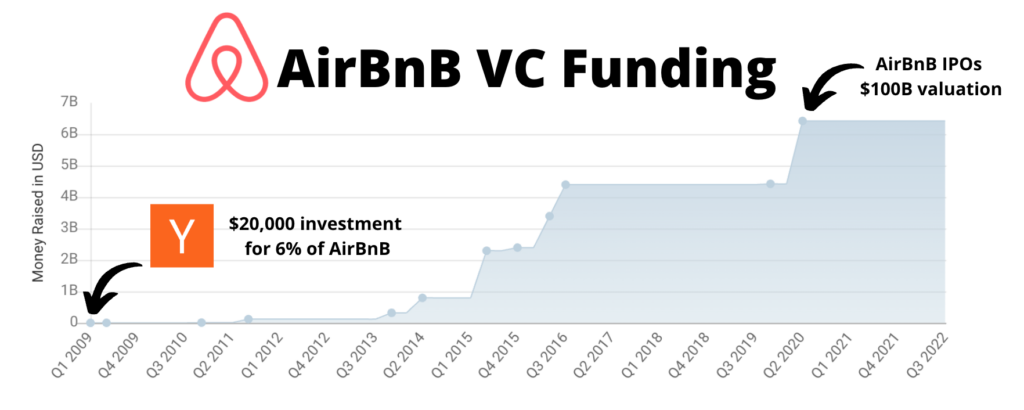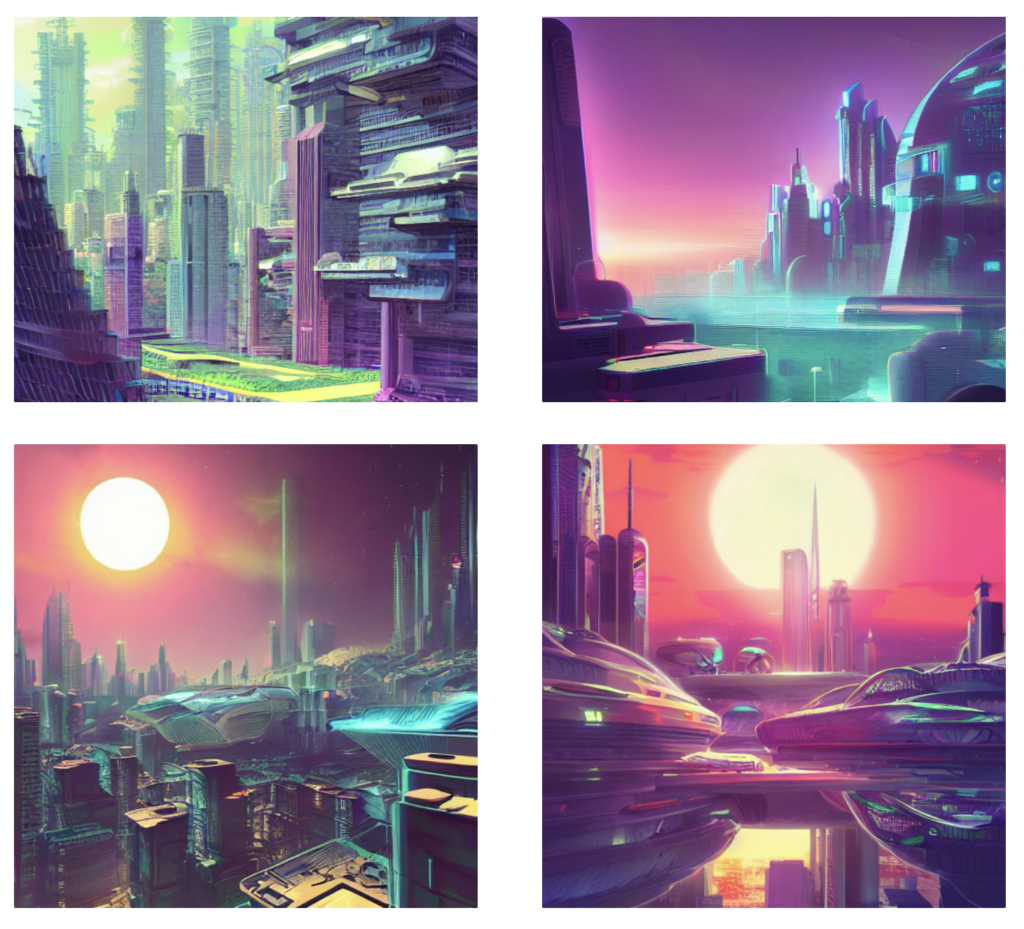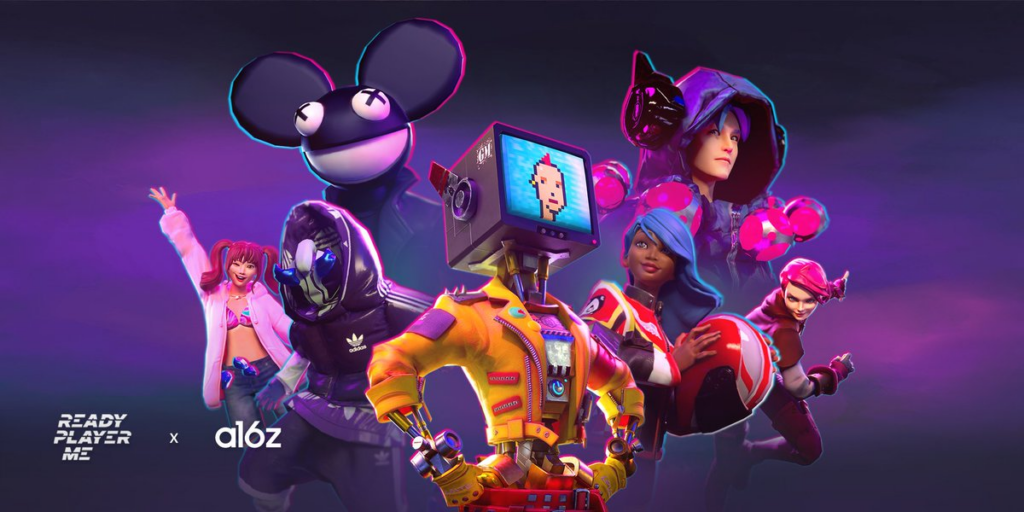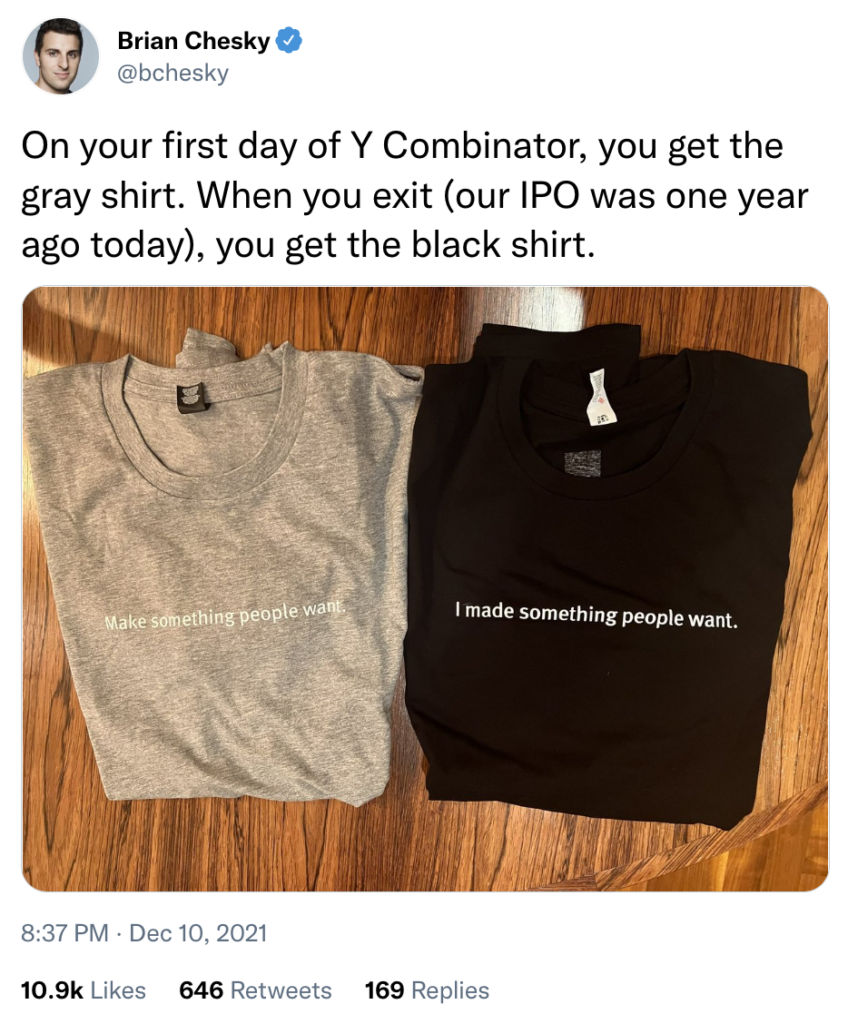29 September 2022 | Investments
Is YC the Greatest Investor Ever?
By
Good afternoon! With the news that Garry Tan is taking over as CEO of Y Combinator we’re diving into the history of Silicon Valley’s most successful startup accelerator and asking the question: Is Y Combinator the best performing investment management firm of all time?
Plus, Stable Diffusion unleashes generative AI, Peloton revenue is down 28%, and Andreessen Horowitz bets gaming avatars are the next big thing for Web3.
THIS WEEK IN VENTURE
Garry Tan and Y Combinator
As CEO of YC Garry Tan is taking over one of the greatest institutions in Silicon Valley. YC invented the startup accelerator and has funded a staggering number of unicorns. Today we’re breaking down YC’s insane returns and Garry’s own success backing YC companies at Initialized.

Y Combinator
Founders: Paul Graham and Jessica Livingston in 2005
Key Investments: AirBnB, Coinbase, Stripe, Instacart, Doordash, Dropbox, Gingko Bio, Opensea, Faire, Brex, Reddit, Whatnot, Twitch
The YC Deal: $500k for 7% at Seed stage
How It Works: A 10 minute interview (and only 10 minutes), two batches a year, a pitch for VCs at the end
What to Know: Started way back in 2005 with Paul Graham’s own money — he sold his first startup to Yahoo for ~$50M in 1998 — YC is the world’s premier startup accelerator and is one of Silicon Valley’s most important firms.
Venture Math
YC is a money printer. For every company that goes through the program, YC invests $125k for 7% ownership, a $1.8 million valuation. Considering their alumni — like Coinbase, Instacart, Doordash, Brex, and Reddit — that is an incredible deal. When most of today’s tech giants went through YC that investment was even smaller.
When Airbnb went through the Winter 2009 YC batch the deal was $20k for 6% of the company.
If YC held that 6% stake in Airbnb from 2009 to 2021 when AirBnB went public and hit a $100B valuation, it would have made an absurd 300,000X return and the $20k invested would be worth $6 billion.

If AirBnB were YC’s only breakout investment it would be enough to propel the accelerator into the top tier of VCs. But AirBnB is just the tip of the iceberg.
Just three months after AirBnB, Stripe went through YC in the Summer 2009 batch. Stripe got that same deal, $20k for 6% and as of March 2021 Stripe was valued at $95B. Coinbase and Instacart went through in 2012.
YC’s returns over the last 17 years might make it the best-performing investment firm of all time.

Garry Tan
Garry Tan is by all accounts one of the nicest people in Silicon Valley. He went through YC in 2008 and four years later started his own VC firm, Initialized Capital to invest in YC founders. With his first $7M fund in 2012 fund he made the very first investment into Coinbase.
He’s also got a Youtube channel where he tries to break down VC. It gets derided at times in tech circles for videos like How I turned $300k into $2 Billion! but I highly recommend it. Plus, he actually did make an 6,000X return on his investment in Coinbase.

And that’s not all. Initialized has made an incredible set of investments over the past 10 years. Initialized Unicorns include Coinbase, Instacart, Cruise, Flexport, and Patreon. Cumulatively they have a market cap well over $100B.
The key to all of those investments has been sticking close to YC and investing in founders early. At YC he’ll be running that same playbook but now for 500 new companies a year.
AI ART
Stable Diffusion: AI for the Masses
- Stability AI’s Stable Diffusion a new AI model for generating images
- The model uses text prompts to generate images from scratch
- Unlike Open AI’s DALLE-2, Stable Diffusion is free and completely unrestricted. Its license makes it free for commercial and non-commercial usage, which means anyone can build products with it.
An AI generated image in the style of Van Gogh made by Stable Diffusion:

What is it? Stable Diffusion’s AI model that generates images from a text prompt. For instance, I asked it for futuristic sci-fi cities and it created these:

Free for All
With Stable Diffusion the AI genie is out of the bottle. When Open AI released DALLE-2 last year they carefully managed access and vetted developers to prevent misuse. Stable Diffusion is live on Github and Hugging Face, public community hubs for developers. It’s accessible to anyone and everyone.
It’s a win for product builders. There’s been an explosion of projects in the one week since Stable Diffusion’s release: Figma plugins, a Discord bot, Photoshop tools, and no-code apps like Diffuse the Rest and Artbreeder Collage so that non-developers can use it. Try it out for yourself with Dream Studio.
On the other hand, it’s already been used to make deep fakes and a whole bunch of ethically questionable things.
Image enhancing from the Stable Diffusion walkthrough How to Draw Anything:

The Next Big Thing…
More than anything, Stable Diffusion reminds me of this Chris Dixon quote on the next big thing:
The reason big new things sneak by incumbents is that the next big thing always starts out being dismissed as a “toy.”
Disruptive technologies are dismissed as toys because when they are first launched they “undershoot” user needs. The first telephone could only carry voices a mile or two.
— The Next Big Thing Will Start Out Looking Like A Toy, Chris Dixon 2010
This is exactly where generative AI is today. Stable diffusion isn’t a polished product, it’s a toy. But as Chris goes on to point out, technology usually evolves faster than we expect.
Today GPT-3 can help you write ad copy and Sequoia just invested $2M in Twain, a company using AI to help you write better. Generative image AI can make memes and fun photos.
But how long will it be before AI can write Tweets? Or generate TikToks? What about novels or video games or TV series? Might we like AI generated content more than content created by our friends? What would that do to social media?
Takeaway: Open AI tried to act as gatekeeper for generative AI models but Stable Diffusion has unleashed them. The pace of development will only pick up from here. Its software. It’ll be copied, forked, edited, improved, and ultimately commodified.
Right now these models look like toys but soon we’ll have real, useful products built on them. What those will look like is anyone’s guess.
In Other News…
Peloton revenue is down 28% YoY with a $1.2B annual loss. Ouch.
To compensate, Peloton has starts selling bikes on Amazon to drive sales but since Amazon takes a 15% referral fee from third-party sellers I wouldn’t bet on help from that quarter.
California has announced they’ll ban the sale of gas powered cars by 2035. The battery industry is already red hot but this underscores the critical need for more rare Earth minerals like lithium, cobalt, and even copper.
SpaceX has partnered with T Mobile to expand cell service with Starlink. This is a big win for both companies. SpaceX gets a massive contract with a US mobile network and T Mobile can instantly compete with Verizon and AT&T by using Starlink satellites to expand coverage to virtually everywhere.
CHIPS: Intel secures investment for a $30B factory in Arizona. This will add to the company’s new $20B foundry in Ohio and $30B factory in Europe. Chinese semiconductor manufacturer SMIC is spending $7.5B on a new factory too.
Russian state media bought the news arm of Yandex, Russia’s largest search engine, giving the government even greater control over Russian media — if that’s possible.
Twitter’s Whistleblower: Twitter’s former Head of Security, Peiter Zatko claims Twitter management purposely misled its board on issues of cybersecurity. He also hints that they may intentionally be miscounting bots on the platform which could lend credibility to Elon’s case against the company.

VC FUNDING
Raise: $56M Series B from Jon Lai and Chris Dixon at A16Z
Including: David Baszucki, co-founder of Roblox, Justin Kan, co-founder of Twitch, Henry Ault, co-founder of Eco
One Liner: Avatar creator for video games

On the surface Ready Player Me is a pretty standard developer tool. It’s an avatar builder that developers can plug into games so they don’t have to create that functionality themselves. It’s got some cool features, like creating an avatar from a photo, but the real promise is probably in cross-platform interoperability.
As I’ve written about before, I think gaming could be the killer app for crypto and interoperability is a key reason why. The idea is that when you own an NFT of your in-game character you’ll be able to take it with you. Like a specific Fortnite skin? Bring it to Minecraft. Have a Bored Ape? Use it anywhere.
There are some real technical challenges with interoperability too — A Fortnite avatar might render as super small in Halo or the size of a building — but if the avatars were all made by a single company and designed to be rendered anywhere, like what Ready Player Me is doing, they could become real digital identities that travel with you across games and the web.
Today these avatars are owned by gaming companies and they have no incentives to give users ownership or make them usable beyond their games. Ready Player Me is one step closer to an open, interoperable internet of games.

Raise: $80M from Algorand and NEAR
One Liner: Angel fund of 1,000+ Y Combinator founders and alumni investing in a new crypto startup
Speaking of YC, Orange DAO is a alumni group for former YC members focused on funding the next great crypto startups. They help founders apply to YC and fund them before even YC does.
It’s also an experimentation with on-chain credentials. To join Orange DAO you have to have an NFT proving you’re a Y Combinator alumn. NFTs like these could one day form digital resumes, serve as tickets into token gated clubs, and verify identity.
If you’re a crypto startup you can apply for funding from Orange DAO here.
ONE FUN THING:
Brian Chesky, founder of AirBnB and YC alumn, IPOed at a $100B valuation and all YC gave him was this t-shirt…
